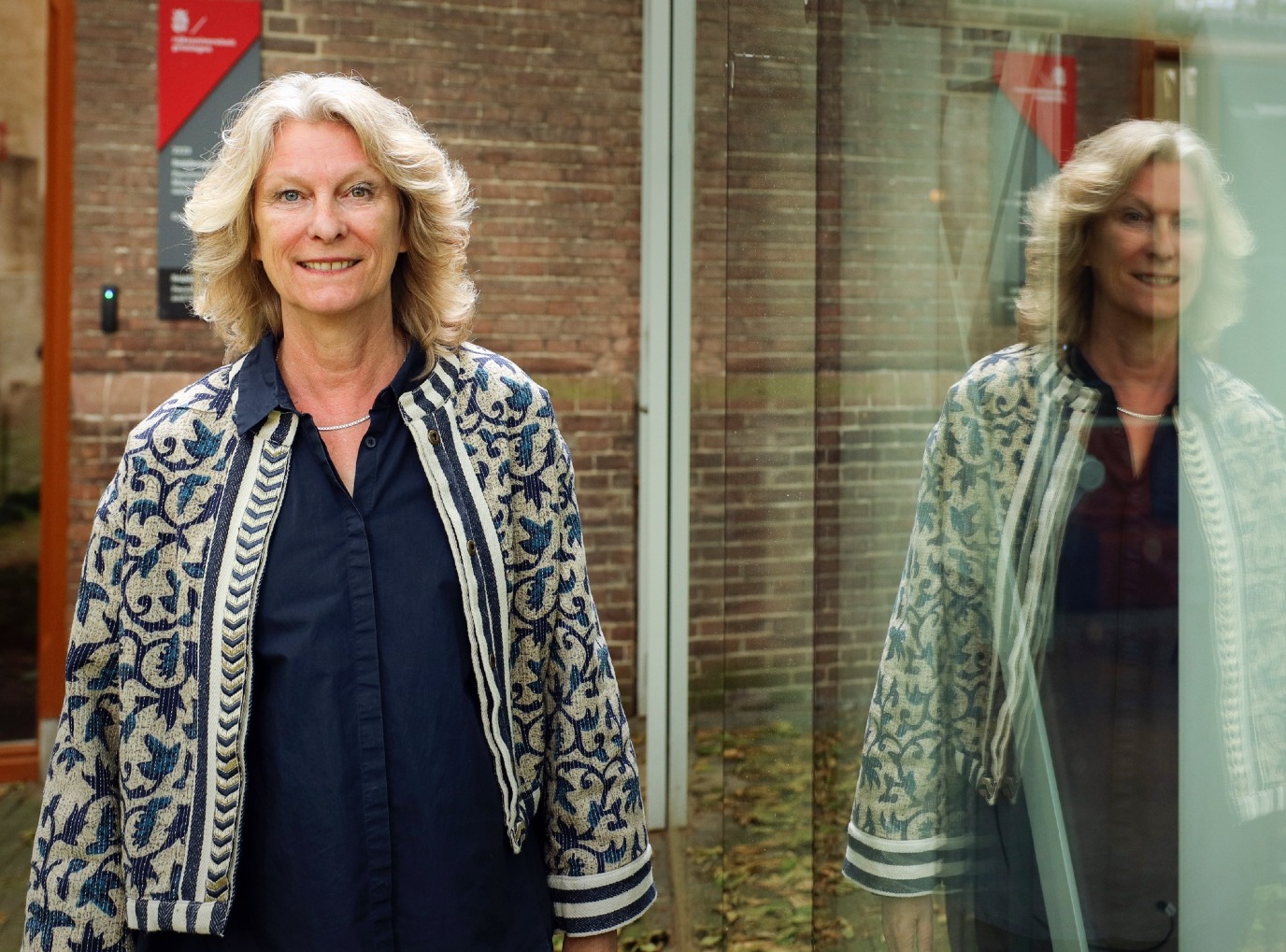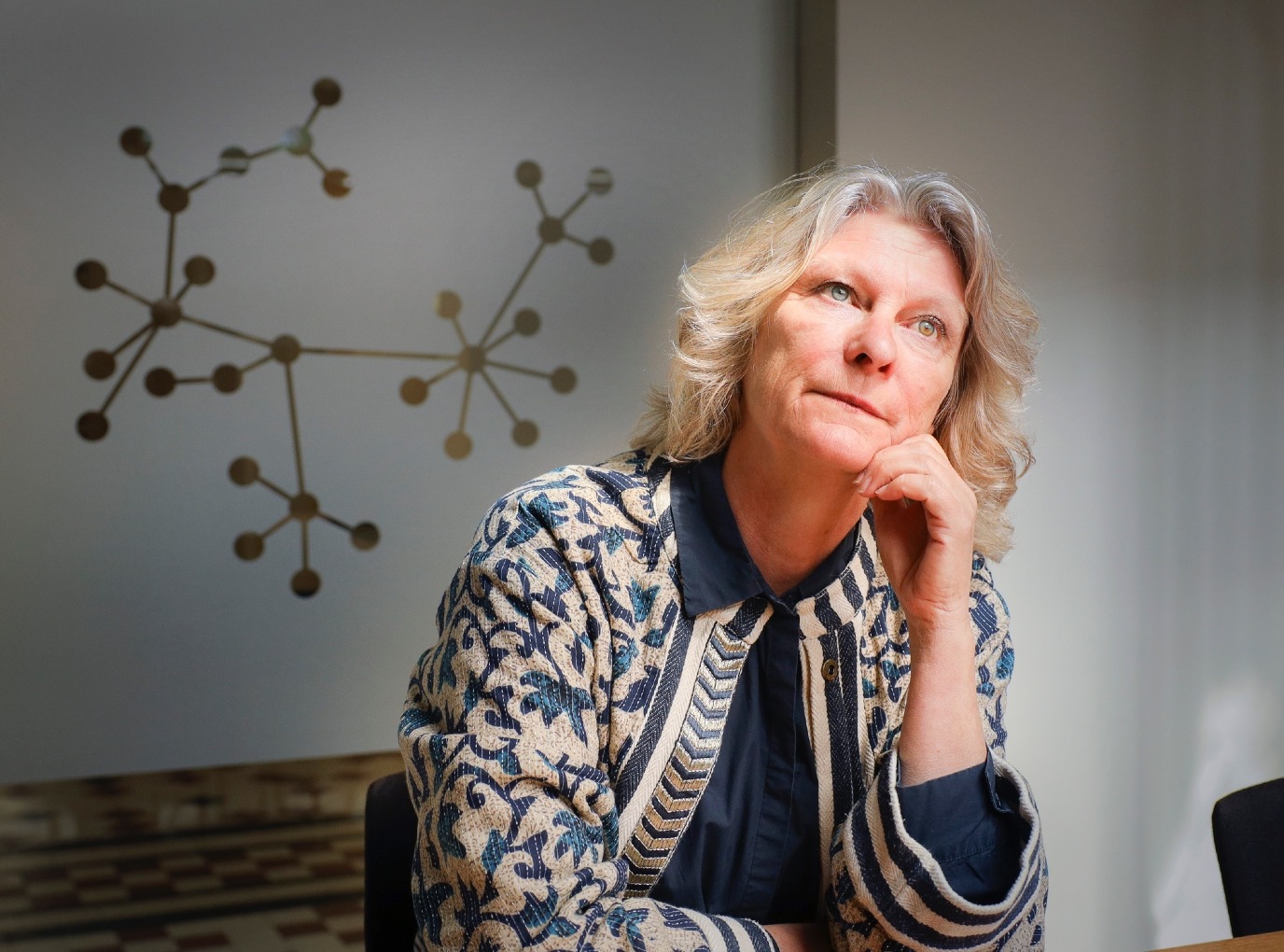The brain as tumble tower

For decades, Monicque Lorist, Professor of Cognitive Neuropsychology, has been trying to unravel how the human brain works. What influences our thinking? What happens when we are tired, or when we age? ‘There‘s still so much we don’t know. Questions I enjoy finding the answers to.’
Text: Beau Oldenburg / Photos: Henk Veenstra
You may recognize it: when you cycle to work in the morning, your surroundings pass by in full detail. But when you cycle back after a busy day, ‘suddenly’ you are home. What happened along the way? No idea.
Dynamic system
Exactly these glitches in our mental sharpness are what interests Monicque Lorist. As a Professor of Cognitive Neuropsychology, she investigates how the functioning of the brain can vary constantly: why we feel energetic and sharp one moment, and slow and absent-minded the next. Mental fatigue, old age, stress, or even a cup of coffee — these are all factors that play a role in how we think, remember, and make decisions. ‘The brain is not a fixed entity,’ she says. ‘It’s a dynamic system that is constantly moving.’
Different every day
One of the core insights from Lorist’s research: cognitive differences do not only exist between people but also within the same person. ‘We are quick to label one another — someone has a good or bad memory — but in reality, our performance goes up and down,’ she says. According to her, understanding where these fluctuations come from is vital to be able to determine what a healthily functioning brain actually entails.

Looking inside the brain
To get an idea of what goes on inside the brain, Lorist combines behavioural research with brain activity measurements. Together, reaction times, EEGs, and MRI scans provide a detailed image of the brain activity during cognitive tasks. ‘You can see, for example, exactly what happens when someone needs to push a button when they see a particular letter. These types of simple tasks reveal a lot about the interaction between attention, memory, and decision-making.’
The impact of fatigue
In her early research, Lorist looked at the influence of caffeine. ‘Technically, coffee doesn’t make you more alert; it reinforces your focus on what you deem important.’ Then her attention shifted to mental fatigue. ‘When you’re really tired, parts of your day sometimes disappear from your mind. That’s a sign that the brain is too heavily burdened.’
Compensation
Lorist also researches how the brain changes as we get older. She wants to dispel the idea that ageing automatically means decline. ‘Ageing is not a passive process. We see that we are able to adjust at all ages, also when we get older.’

Keeping the brain sharp
This flexibility is not infinite though, the researcher warns. As we get older, the structures and connections in our brains change. It is therefore essential to keep challenging yourself cognitively. ‘Doing a sudoku puzzle is fun, but it mostly trains one skill. What your brain really needs is complexity: using several functions simultaneously. Think of dancing or learning to play an instrument.’ She compares the brain to a tumble tower: ‘Your ability to absorb a loss here and there improves with every steady block.’
Retirement as tipping point
Lorist sees the moment people retire as an important turning point in life. ‘To some it’s a relief — they are completely worn out. But to others, so many things suddenly disappear: the daily routine, the interaction with colleagues, the activity that comes with commuting. It’s good when people take up new hobbies and take on new challenges, particularly when they retire, to make sure the tumble tower stays stable.’ In a current study, she researches how the brain activity changes around retirement.
Staying fit
Lorist herself keeps her brain sharp through her work, her students — ‘they ask questions I would have never thought of’ — and her daily 25-minute cycle route to the University. Nutrition also plays a role: she eats mindfully, with few sugary products and nothing pre-prepared. Her curiosity is her strongest motivator. ‘There’s still so much that we don’t understand about the brain. That’s exactly what makes this field so interesting.’
More information
More news
-
20 January 2026
Alcohol, texting, and e-bikes
-
13 January 2026
Lonneke Lenferink joins The Young Academy
-
08 December 2025
Citizen participation essential for a sustainable energy future
